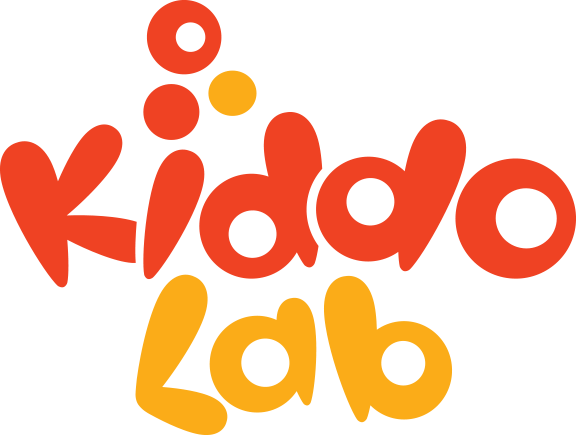
Babies are bundles of joy to the family. They take away all the negativity in the home especially if they let out their squeals of delight. Babies, and children for that matter, can be a handful. As parents, you need to know how to handle them properly to bring out the best in them.
It is essential that as parents, mothers in particular, we should know what to do to help in the development of our baby. Small though they may be, they need our full attention as they grow.
Being keen and observant to the signs your baby sends out will help you understand them better. This will help you see if what aspects of your baby’s development need extra attention. Being observant when it comes to your baby will help you see if your baby is developing properly or if your baby has any unusual behaviour. This way, if you sense something wrong, you can seek professional help for it so it will not develop into something big.
BOOSTING YOUR BABY’S BRAIN DEVELOPMENT
The simple activities like playing peek-a-boo, or stacking cups, or piling blocks, and many other simple and ordinary activities are ways to boost your baby’s development in the early stages. The first step, your baby’s first words, first smile, and all the “firsts” that your baby may do is something that parents are excited to experience.
Studies show that babies can develop and learn more if they are given the chance to explore new environments and different materials. A little “push” will help in your baby’s brain stimulation. Toys may help, but choose those that can help in their development. You do not need to buy them expensive toys, just make sure that you challenge them mentally while they play to improve their brain development.
The activities that you must do with your baby to boost their brain development depends on their age. For new born babies, just spending time with them and being attentive to their needs will help. Holding their hands, observing their facial expressions, will help your baby familiarize himself with your face. Singing, reading aloud and just talking to your baby often will be a great help in his brain stimulation.
For babies aged three months, they are more active and mobile. This is the age where they try to reach out for things. Give them different objects to help them familiarize with textures. Letting him look at himself in the mirror will help your baby identify his face. It is also best that you feed him often to give him more strength.
Six month old babies develop motor skills in this age. This is where activities like piling blocks, stacking cups, and other educational toys and activities will help them develop their fine motor and growth motor skills. This is where they need a face-to-face interaction with their caregivers.
At nine months, this is where your babies go after things. Rolling a ball, with your baby watching as it rolls away, will stimulate his body to go after it. Push and straddle toys will also help your baby get moving and getting ready to learn to walk. Talking with your baby often, engaging in back and forth conversation, asking questions and teaching him how to answer it will help in your baby’s language development.
One year old babies need to be exposed to the outside world. Going for walks, playing at the park, and other outdoor activities are great for your baby’s stimulation. This will show them that there is more in the world to explore than the four corners of your home. Exposing them to other people aside from family members only, will help them develop their social skills. Exposing them to electronic gadgets and the social media is fine as long as there is parental guidance and done in an educational manner.
BOOSTING YOUR BABY’S LANGUAGE DEVELOPMENT
Exposing your baby to conversation even in his early stages will help boost his language development. So it is not just his brain and motor skills that need proper development, but his speech as well.
We, as parents, are undeniably excited to hear our baby’s first word. Will it be “mama” or “dada”? What if your baby’s first word will be “laboratory” or “extremities” how will you react? No, just kidding. Your baby is a genius and extraordinary if that happens.
Regardless of what your baby’s first word will be, they bring us a sense of pride. But do not let your baby’s language begin and end with his first word. You cannot rush your baby’s speech. But you can boost his language skills.
Talking to your baby often. Now this is an easy thing to do. Since you are always in the company of your baby, make sure you converse with your baby. Even when you are doing chores, explain what you are doing to him so he can acquaint himself with words and actions.
Observe your baby’s hands. When babies reach 1 year old, they understand more words than they can say. Since they cannot talk that much yet, watch their hands. Non-verbal communication is an important skill. You can encourage your baby to communicate through gestures.
Do not baby talk. Talk to your baby properly. Do not baby talk him. When you use real words when communicating with your baby, you help him develop his vocabulary, making it wider.
Read to your baby. Reading stories to your baby also helps in boosting his language development. But you have to read properly. Meaning, pronounce words properly. Be articulate. And do not rush through the pages. Meaning, read the story book page by page. This will not only boost your baby’s language skills, but will also teach him patience.
Arrange play dates. Let your baby spend time to play and interact with other babies his age. They may not talk much, but at least it will help them develop their social skills.
Speak using complete sentences or phrases. Babies use what we call “piggyback words”. They usually put together an action and an object. For example they say “drink milk”, you say “Drink your milk.” This way, they will be exposed to correct grammar when communicating.
You can also develop your baby’s language skills by giving him feedbacks, changing your pitch or voice when reading stories or speaking to emphasize your emotions, keep interactive, and follow your baby’s lead.


